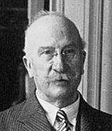Spanish general election, 1933
|
|
|||||||||||||||||||||||||||||||||
|---|---|---|---|---|---|---|---|---|---|---|---|---|---|---|---|---|---|---|---|---|---|---|---|---|---|---|---|---|---|---|---|---|---|
|
|||||||||||||||||||||||||||||||||
|
All 473 seats of the Congress of Deputies 237 seats needed for a majority |
|||||||||||||||||||||||||||||||||
| Turnout | 67.31% | ||||||||||||||||||||||||||||||||
|
|||||||||||||||||||||||||||||||||

Areas of most support: the right (dark blue), the centre-right (light blue), the centre (green) and the left (red).
|
|||||||||||||||||||||||||||||||||
|
|||||||||||||||||||||||||||||||||
Elections to Spain’s legislature, the Cortes Generales, were held on 19 November 1933 for all 473 seats in the unicameral Cortes of the Second Spanish Republic. Since the previous elections of 1931, a new constitution had been ratified, and the franchise extended to more than six million women. The governing Republican-Socialist coalition had fallen apart, with the Radical Republican Party beginning to support a newly united political right.
The right formed an electoral coalition, as was favoured by the new electoral system enacted earlier in the year. The Spanish Socialist Workers' Party (Partido Socialista Obrero Español, or PSOE) won only 59 seats. The newly formed Catholic conservative Spanish Confederation of the Autonomous Right (Confederación Española de Derechas Autónomas or CEDA) gained 115 seats and the Radicals 102. The right capitalised on disenchantment with the government among Catholics and other conservatives. CEDA campaigned on reversing the reforms that had been made under the Republic, and on freeing political prisoners. Anarchists favoured abstention from the vote. These factors helped the election to result in significant victory for the right over the left.
Elections in June 1931 had returned a large majority of Republicans and Socialists to the Cortes, with the PSOE gaining 116 seats and the Radical Republican Party 94. The state's financial position was poor. Wealth redistribution supported by the new government attracted criticism from the wealthy. The government also attempted to tackle poverty in rural areas by instituting an eight-hour day and giving security of tenure to farm workers, drawing criticism from landlords.
...
Wikipedia



